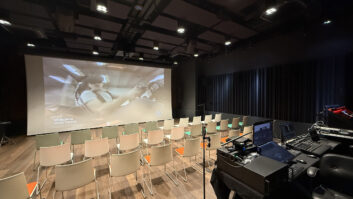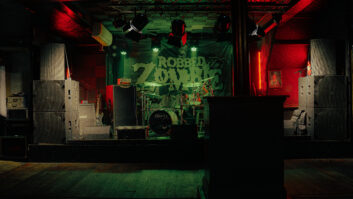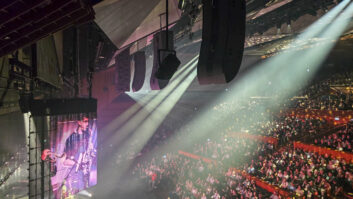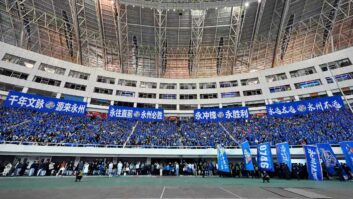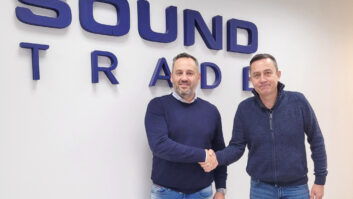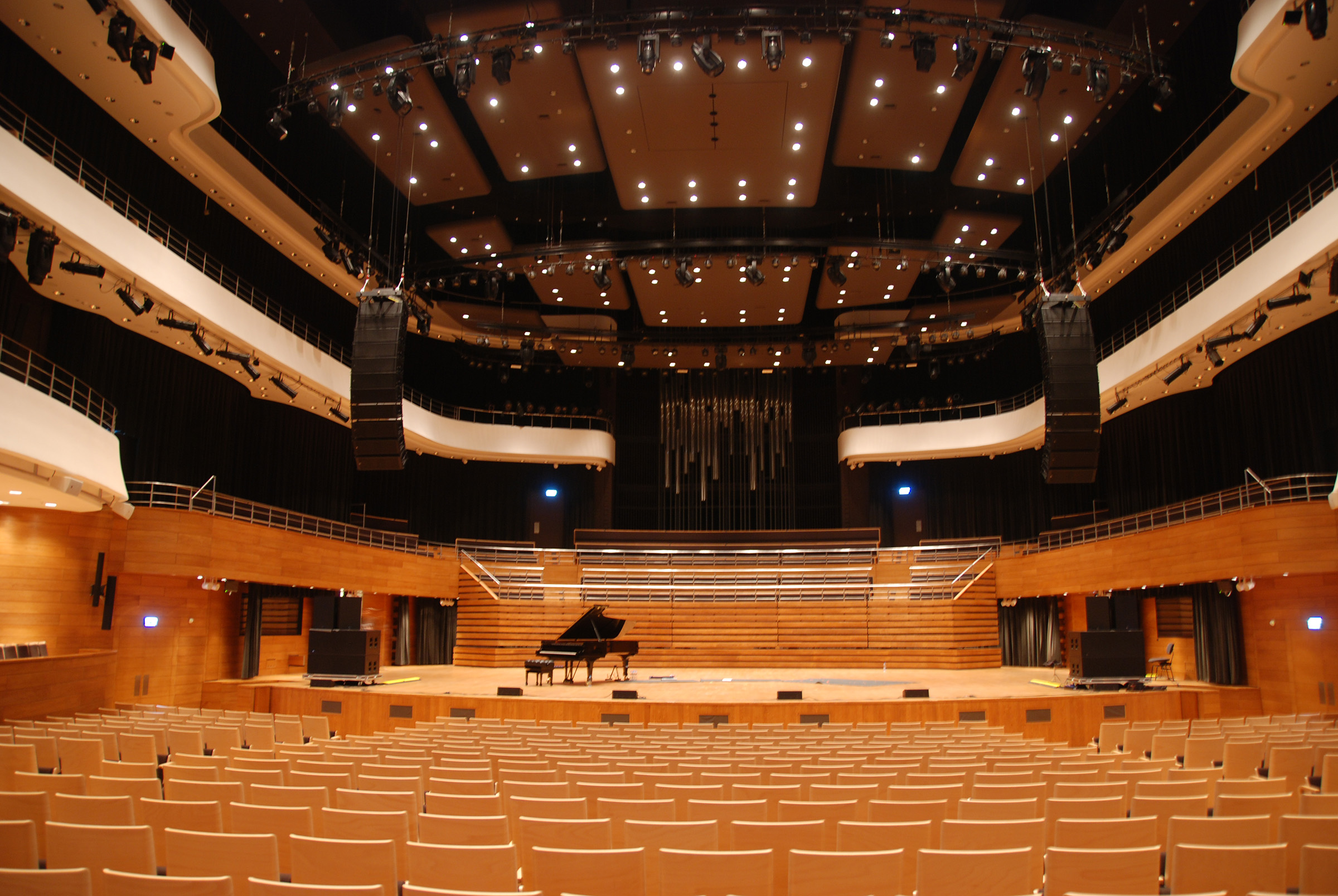
Optocore signal distribution and routing has been installed at the new National Forum of Music (NFM) in Wroclaw, as part of what is believed to be one of the biggest and most advanced technical implementations in Poland.
The NFM will become home to all the city’s major orchestral and vocal ensembles and festivals. It houses an 1,800-seat concert auditorium and three smaller chamber halls (ranging from 250 to 450 seats). In addition to staging jazz and pop concerts, it will also double as a movie theatre.
The AV installation was designed by APA Kuryłowicz & Associates. The Optocore system, which provides 768 inputs, was approved by the consultancy, Artec, and supplied by the German manufacturer’s dealer, M. Ostrowski. Installation and commissioning were handled by ESS Audio, which oversaw the audio, video and intercom. The company formed part of a two-way consortium with PS Teatr, which was responsible for the mechanical staging and lighting – with both parties contracted by Inter-System, the general contractor for the venue.
ESS was working with Optocore for the first time, and its project manager Adam Pieron admitted: “I was positively surprised as installation and configuration went extremely smoothly.” In designing the routing system he consulted Optocore’s applications engineering manager, Maciek Janiszewski.
Optocore has provided the mic preamp front end in the form of eight multiple X6R-FX interfaces (all DualMic) and 22 X6R-TP DualMic devices, connected to the X6R-FX via the SANE protocol. Two sets of four X6R-FX and 11 X6R-TP DualMic modules are in use in the main hall and five DD2FR-FX MADI interfaces handle the FOH, monitor mixer, OB vans, ProTools HDX recording and MADI-Analog-AES converter.
Four separate gain controls are provided to 120 mic inputs – and up to four mixing desks, including the Soundcraft Vi6 and Vi1 delivered with the system, could control gain individually.
In addition, two further DD2FR-FX Optocore devices distribute MADI between the different auditoriums. “Two DD2FR-FX are used to connect all the halls (Red, Black and Chamber) on a single Optocore MADI network,” said Pieron. Soundcraft Vi consoles, with additional MADI cards for Optocore, reside in both Red and Black halls while in Chamber Hall a Soundcraft Performer 2 is also fitted with an additional MADI card. “So with all halls connected to Optocore, you can for instance record a concert in the Red Hall, or transmit a concert from main hall to all recital halls.
“The DD2FR-FX enables very flexible control of the Optocore preamps from the portable Soundcraft consoles – the operator just needs to connect to one DD2FR-FX and adjust Emulation Mode mapping – which can be done with a single macro button.”
Pieron confirmed that the Artec spec contained several key requirements – notably the four independent analogue gains for each channel – and this is why the Optocore devices, with their DualMic pre modules, proved to be the best choice. “There were more expensive options we could have considered but Optocore is very flexible and capable of handling complicated MADI routing – and DD2FR-FX modules are compatible with both Soundcraft and Studer mixers. It met all the requirements and was the easiest system to implement; it all went in very smoothly.”
According to ESS Audio, although the hall presently operates one big network, this enormous channel capacity makes it possible to run two separate Optocore networks if preferred: for example the first and second gains only with FOH, monitors and all connections between halls (with 48kHz sampling frequency), and third and fourth gains with REC and OB Vans (with 96kHz).
One hundred and twenty channels have been assigned for each gain – again specified by Artec – fed from a Bantam patchbay.
Adam Pieron believes that the operator has an elegant solution to work with. He said: “All they have to do is to choose which Optocore channels they wish to control – with regard to gain and phantom power – and the Soundcraft consoles recognises it just as they would Soundcraft stageboxes.”
As for sound reinforcement, while one Optocore DD32R-FX interface feeds the Meyer Sound Galileo and Galileo Calisto processors, the second feeds the large ClearCom intercoms system and BSS Soundweb BLU network, which controls Crown amps and 70 JBL speaker zones over the proprietary BLU-Link; this covers the announcement systems in the concert hall and throughout the entire complex. Premium Meyer Sound systems, specified by Artec – which remained as onsite consultant and engineering supervisor – are found in each of the halls, with Mina and Mica systems providing the main PA hangs in the principal two.
In conclusion, Pieron is confident that the Optocore deployment meets all the requirements of the venue and the operators. “We have given them a very big, very flexible and hopefully very reliable system,” he said.

